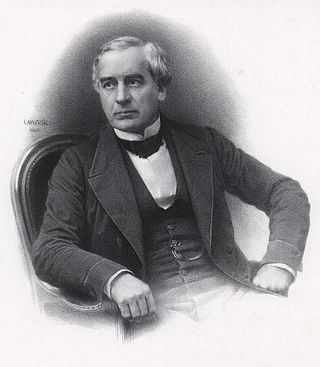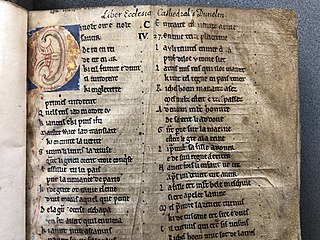
Henry IV, also known by the epithets Good King Henry or Henry the Great, was King of Navarre from 1572 and King of France from 1589 to 1610. He was the first monarch of France from the House of Bourbon, a cadet branch of the Capetian dynasty. He pragmatically balanced the interests of the Catholic and Protestant parties in France as well as among the European states. He was assassinated in 1610 by a Catholic zealot, and was succeeded by his son Louis XIII.

François Élie Jules Lemaître was a French critic and dramatist.

Geoffrey II was Duke of Brittany and 3rd Earl of Richmond between 1181 and 1186, through his marriage to Constance, Duchess of Brittany. Geoffrey was the fourth of five sons of Henry II of England and Eleanor, Duchess of Aquitaine.
Geoffrey of Villehardouin was a French knight and historian who participated in and chronicled the Fourth Crusade. He is considered one of the most important historians of the time period, best known for writing the eyewitness account De la Conquête de Constantinople, about the battle for Constantinople between the Christians of the West and the Christians of the East on 13 April 1204. The Conquest is the earliest French historical prose narrative that has survived to modern times. Ηis full title was: "Geoffroi of Villehardouin, Marshal of Champagne and of Romania".

The Organon is the standard collection of Aristotle's six works on logical analysis and dialectic. The name Organon was given by Aristotle's followers, the Peripatetics, who maintained against the Stoics that Logic was "an instrument" of Philosophy.

Jules Barthélemy-Saint-Hilaire was a French philosopher, journalist, statesman, and possible illegitimate son of Napoleon I of France.
Geoffrey Gaimar, also written Geffrei or Geoffroy, was an Anglo-Norman chronicler. His contribution to medieval literature and history was as a translator from Old English to Anglo-Norman. His L'Estoire des Engleis, or History of the English People, written about 1136–1140, was a chronicle in eight-syllable rhyming couplets, running to 6,526 lines.

The Sequence of Saint Eulalia, also known as the Canticle of Saint Eulalia is the earliest surviving piece of French hagiography and one of the earliest extant texts in the vernacular langues d'oïl. It dates from around 880.

The Brut or Roman de Brut by the poet Wace is a loose and expanded translation in almost 15,000 lines of Norman-French verse of Geoffrey of Monmouth's Latin History of the Kings of Britain. It was formerly known as the Brut d'Engleterre or Roman des Rois d'Angleterre, though Wace's own name for it was the Geste des Bretons, or Deeds of the Britons. Its genre is equivocal, being more than a chronicle but not quite a fully-fledged romance.

Johannes de Garlandia or John of Garland was a medieval grammarian and university teacher. His dates of birth and death are unknown, but he probably lived from about 1190 to about 1270.
Henry d'Andeli was a 13th-century Norman poet notable for his work La Bataille des Vins, and for the satirical poem Battle of the Seven Arts. He also wrote Dit du Chancelier Philippe on the subject of his contemporary Philip the Chancellor.
Pierre Bec was a French Occitan-language poet and linguist. Born in Paris, he spent his childhood in Comminges, where he learnt Occitan. He was deported to Germany between 1943 and 1945. After returning, he studied in Paris, where he graduated in 1959. He was one of the founders of the IEO or Institut d'Estudis Occitans as well as its president from 1962 to 1980.

Anglo-Norman, also known as Anglo-Norman French, was a dialect of Old Norman that was used in England and, to a lesser extent, elsewhere in Great Britain and Ireland during the Anglo-Norman period.

Henri Wittmann is a Canadian linguist from Quebec. He is best known for his work on Quebec French.
Métis French, along with Michif and Bungi, is one of the traditional languages of the Métis people, and the French-dialect source of Michif.

Henri de Saint-Nectaire, 1st Duke of La Ferté-Senneterre was a marshal of France and governor of Lorraine. de Saint-Nectaire
Henri Pognon was a French archaeologist, epigrapher, and specialist in Assyriology.
Bertrand Lançon is a French historian and novelist, a specialist of late Antiquity.

The tale of Phyllis and Aristotle is a medieval cautionary tale about the triumph of a seductive woman, Phyllis, over the greatest male intellect, the ancient Greek philosopher Aristotle. It is one of several Power of Women stories from that time. Among early versions is the French Lai d'Aristote from 1220.












